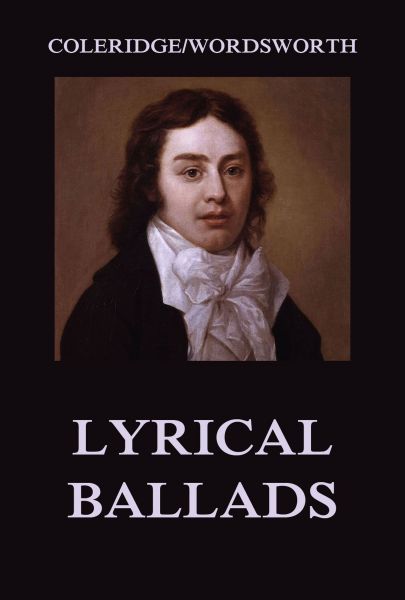Lyrical Ballads
The Ballad as a humble literary type had a certain vogue towards the end of the eighteenth century. It covered the crudest realism as well as the most fantastical romance, and varied in style and treatment as widely as in subject-matter and level of culture. But it hardly held full rank as serious poetry. It was not considered to belong to the literature of culture, but rather to the ruder poetry of the common people. Hence the very title of the new 'experiment', Lyrical Ballads, marked somewhat emphatically the limited pretensions of the supposed single author. In this volume Coleridge as well as Wordsworth joined literary forces.
English poet, philosopher, and critic, born at Ottery St. Mary, Devonshire, son of the Rev. John Coleridge (1719-81), vicar of the parish. In the summer of 1790 he swam the New River in his clothes, caught rheumatic fever, and was confined for some months to the sick-ward of the hospital. This illness, and, as may be conjectured, doses of opium administered to allay the 'seas of pain' (see his sonnet To Pain), affected the whole of his after life. In June of the year 1794 he visited Oxford, where he made friends with Robert Southey. Six weeks later a second meeting took place at Bristol, where Southey introduced Coleridge to the widow and daughters of a tradesman named Flicker. One of the daughters (Edith) was betrothed to Southey, and Coleridge became engaged to her elder sister (Sarah), whom he married October 4, 1795. The Ancient Mariner was begun in November, 1797. In the summer of 1797 Wordsworth and his sister Dorothy settled at Alfoxden, a large manor-house three miles from Stowey. In January, 1798, Coleridge was nominated minister of the Unitarian chapel at Shrewsbury, but resigned the appointment out of regard to the wishes of the brothers Josiah and Thomas Wedgwood, who settled on him an annuity of £150 on the understanding that he should devote his time and talent to literature. The end of the Stowey period is marked by the publication of the first edition of the Lyrical Ballads, to which Coleridge contributed four poems. On Sept. 16, 1798, Coleridge left England for Germany in company with the Wordsworths. He returned to England in July, and in November to December accompanied Wordsworth on a walking tour through the Lake District. The wet climate of Keswick increased an inherited tendency to rheumatic gout and cognate maladies. Severe pain and constant malaise resulted in habitual resort to opium, which weakened the bodily, if not the mental powers, and made regular work all but impossible. Domestic unhappiness—in part, but not wholly, his own fault—was perhaps his crowning misfortune. He died July 25,1834.
Versandkostenfreie Lieferung! (eBook-Download)
Als Sofort-Download verfügbar
- Artikel-Nr.: SW9783849652210110164
- Artikelnummer SW9783849652210110164
-
Autor
William Wordsworth, Samuel Taylor Coleridge
- Wasserzeichen ja
- Verlag Jazzybee Verlag
- Seitenzahl 168
- Veröffentlichung 06.06.2018
- ISBN 9783849652210
- Wasserzeichen ja

